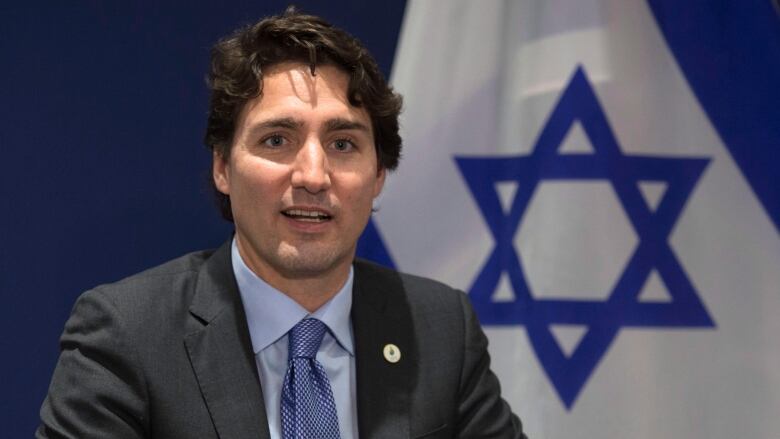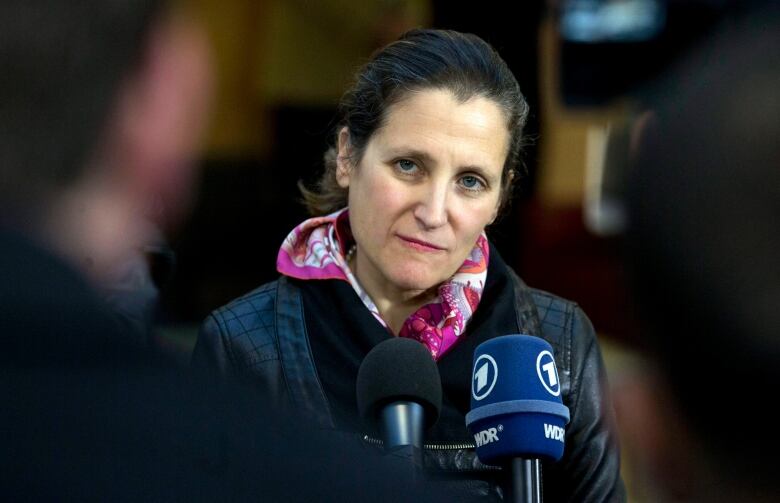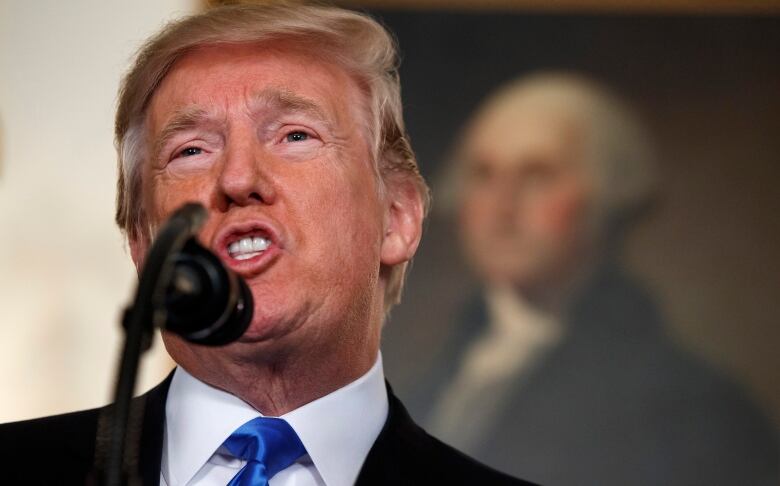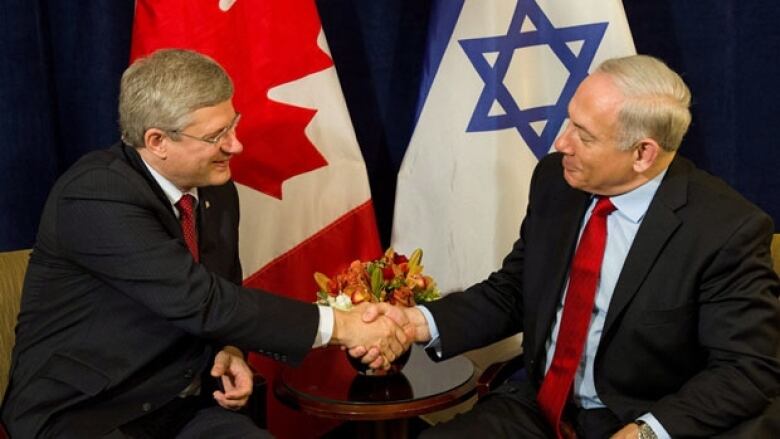While Western allies criticize Trump's Jerusalem move, Canada remains muted
Trudeau government continues pro-Israel policy of Harper government, but does so quietly

Canada will not follow U.S. President Donald Trump's move to recognize Jerusalem as the capital of Israel, nor will it be moving its embassy, says Foreign Affairs Minister Chrystia Freeland.
But Canada laid out itsposition in muted tones, and unlike the governments of Britain, France, Germany and other Western countries, did not make any public effort to change Trump's mind about an action that many in the Mideast see as a needless provocation.
Prior to Trump's announcement, Global Affairs Canada put out a statement:
"Canada is a steadfast ally and friend of Israel and friend to the Palestinian people. Canada's longstanding position is that the status of Jerusalem can be resolved only as part of a general settlement of the Palestinian-Israeli dispute. This has been the policy of consecutive governments, both Liberal and Conservative."
The department stressed the statement was issued in the name of spokesman Adam Austen, rather than Freeland herself. But after Trump's announcement Wednesday, Freeland re-issued essentially the same quote in her own name.
Austen explained Freeland's earlier silence this way: "The minister does not make statements about world events before they happen."

No attempt to influence
Of course, governments and foreign ministers often do make statements either calling for or warning against actions that have not yet been taken. After all, the window of opportunity to influence a decision closes once it is announced.
Other foreign officials not only commented but contacted their U.S. counterparts before the decision was announced, in an attempt to get the Trump administrationto reconsider. French President Emmanuel Macron called Trump, as did British Prime Minister Theresa May.
"We believe it's unhelpful," May said after the announcement, adding that Trump has an obligation to "now bring forward detailed proposals for an Israel-Palestinian settlement."
"We all know the far-reaching impact this move would have," said GermanForeign MinisterSigmar Gabriel. "Everything which worsens the crisis is counterproductive."
"We think it's an unwise step and a counterproductive step," said his Dutch counterpart, Halbe Zijlstra. "I don't think we can use another conflict in this very explosive region."

Trudeau continues pro-Israel stance
Canada's low-key reaction is in keeping with the Trudeau government's handling of the Israeli-Palestinian file, which has so far closely followed the Harper government's alignment with Israel, but has done so quietly, rather than trumpeting it in fundraising emails.
At the United Nations, Canada under Trudeau continues to block resolutions condemning Israeli actions in the occupied territories alongside the U.S., Israel and a small coterie of Pacific island nations that depend heavily on the U.S. and traditionally vote in lockstep with it.
Last December, Britain, France, Germany, Italy, Russia, Japan, China and 162 other nations all supported UN resolution 17/96, guaranteeing the protections of the Geneva Convention to Palestinian civilians in the occupied territories.
The Trudeau government joined forces with the United States, Israel, Micronesia, Palau and the Marshall Islands to oppose it.
Canada has voted against motions that align closely with its own official position, such as a motion to "promote the realization of the inalienable rights of the Palestinian people, including their right to self-determination, to support the achievement without delay of an end to the Israeli occupation that began in 1967 and of the two-state solution on the basis of the pre-1967 border."
The Trudeau government voted against that one on Nov. 24, 2015.
It also voted against motions calling on Israel to respect the "special international regime" status that Jerusalem has officially enjoyed since 1947, even though Canada voted to create that status and it remains part of Canada's official policy.
And just this month, Canada joined the U.S. and four other small nations to vote against a UN resolution to disavow Israeli ties to Jerusalem, which came amid rumours that Trump was ready to recognize it as the capital of Israel. The resolution passed 151-6.

'Entirely unchanged'
The votes have been noted with gratitude by Israel's Canadian supporters. Just three weeks into Trudeau's mandate, Noah Shack, of the Centre for Israel and Jewish Affairs, praised "Prime Minister Trudeau's commitment that he's reiterated time and again that his government will continue the multi-partisan support for Israel that characterized the previous government."
Hillel Neuer of pro-Israel group UN Watch "applauded" the Trudeau government, noting its voting pattern was "entirely unchanged from last year."
The Liberal government has pursued that unpopular path at the UN in spite of its campaign to win a seat on the Security Council, even though a similar pro-Israeli stance was widely assumed to have stymied Canada's bid for a seat under Stephen Harper.
And while the approach has won plaudits from the Jewish community, it doesn't appear to have stirred discontent among the Liberal party's Arab and Muslim supporters, perhaps because the government has pursued the policy with little fanfare, and the votes have drawn little media notice.
Little daylight between parties
The lack of protest or controversy from Canada also reflects the fact that, in recent years, any real daylight between Canada's three main parties over the Israeli-Palestinian issue has disappeared.
In Europe, parties on the left and right often clash over different visions of which side deserves their support. Canada is more like the United States, where support for Israel is almost the only issue Republicans and Democrats still agree on.
Stephen Harper's affinity for Israel was legendary. The Liberals' shift away from neutrality to a pro-Israel stance dates back to Paul Martin, and former NDP leader Tom Mulcair said he would back Israel "in all situations, in all circumstances," and proved it by purging party candidates who criticized the Jewish state in the last election.
Under new NDPLeader Jagmeet Singh that may be changing. Singh on Wednesday called Trump's move an "unacceptable decision" that is "counterproductive and divisive."












_(720p).jpg)


 OFFICIAL HD MUSIC VIDEO.jpg)
.jpg)



























































































